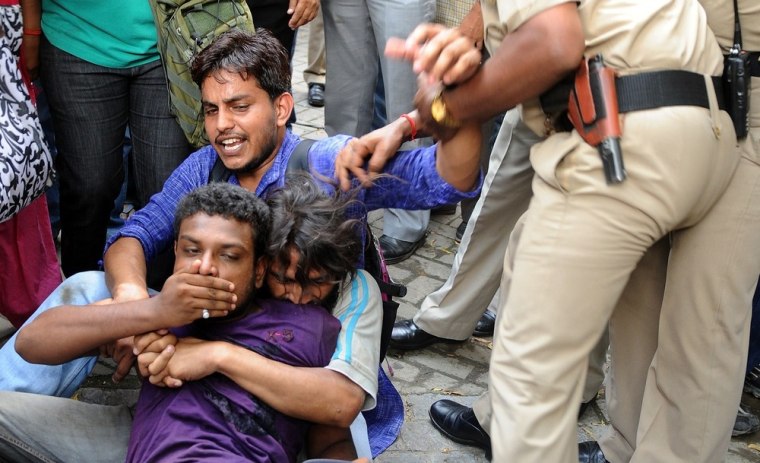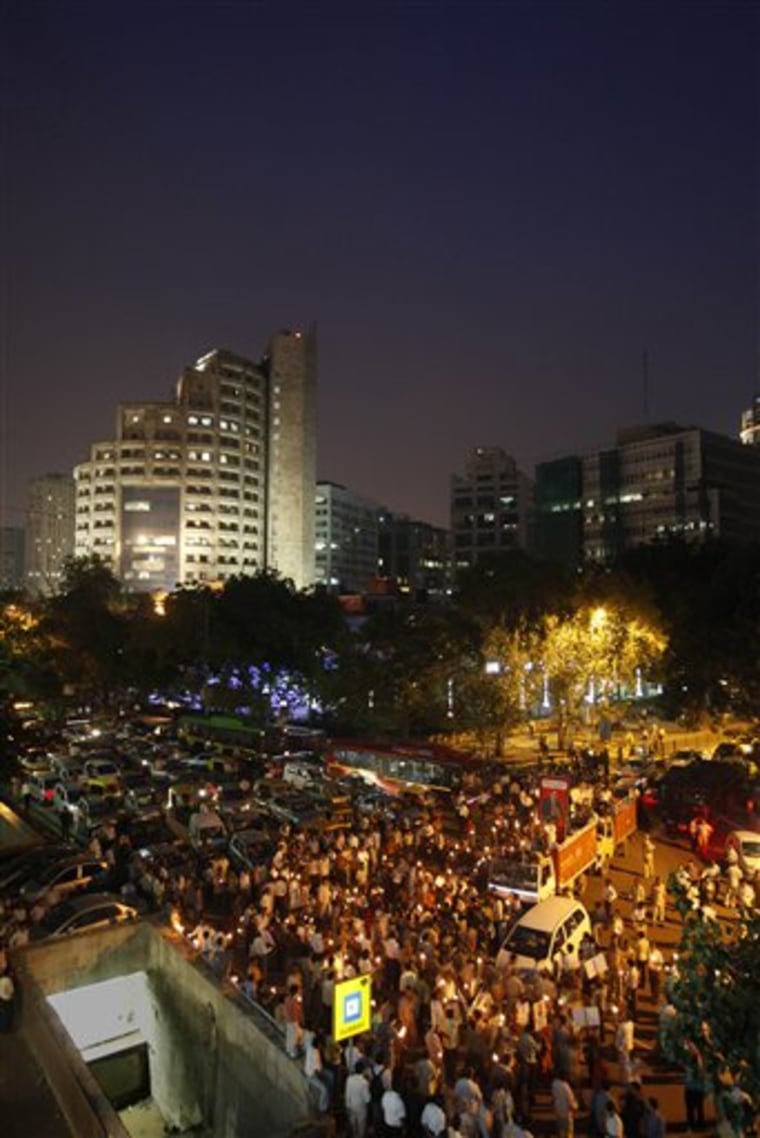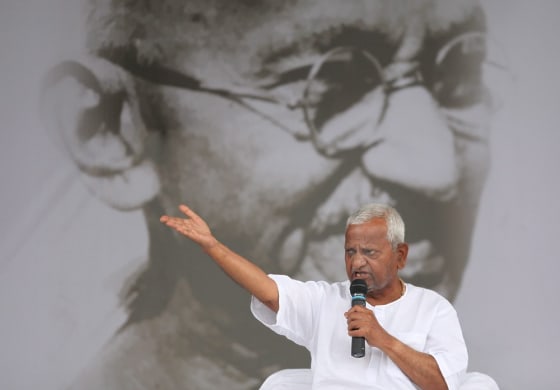Indian lawmakers agreed after frantic talks Wednesday to discuss a stringent anti-corruption law proposed by a reform activist whose eight-day fast demanding the legislation has drawn burgeoning support and tested the scandal-tainted government.
Beleaguered Prime Minister Manmohan Singh met with all parties in Parliament, which called on Anna Hazare to end his hunger strike and recommended that lawmakers debate his draft of an anti-corruption bill.
Singh told the meeting that the protesters were demanding the government withdraw its version of the bill, table their version within four days and pass it this session with only minor amendments. Critics have accused the protesters of blackmailing the government and subverting Parliament.
"Recent developments have raised issues related to the functioning of our parliamentary democracy that concern all of us," Singh told the lawmakers, saying he was seeking their "guidance on the way forward."

A key Hazare aide said that the government should table the bill in Parliament immediately.
"I want to request the prime minister, if you are so concerned about his health, you should table the bill in Parliament tomorrow," and Hazare would end his fast, Arvind Kejriwal told reporters.
The principal difference between the bills is whether a national anti-corruption watchdog should have power to investigate and sanction the prime minister's office and the judiciary.
Critics of Hazare's bill say its provision granting such power to the watchdog would be unconstitutional and note that top leaders in most democracies worldwide have immunity from such investigations.
The government has agreed to study Hazare's version of the bill before arriving at a fresh draft for a tough anti-corruption law.
A third round of talks between Hazare's aides and senior government ministers followed the meeting of the lawmakers but ended with little success.
Law Minister Salman Khurshid, a key negotiator, told reporters the talks were "positive," adding that discussions would continue Thursday.
But Kejriwal said he was disappointed with the slow progress on Hazare's demands and said despite days of talks the government continued to vacillate. "We are still where we were three days ago," he told reporters.
Hazare's fast has drawn tens of thousands of supporters to a round-the-clock protest rally in the heart of the capital and tested a government reeling from scandals said to have cost the nation billions of dollars.
In another blow to the government Wednesday, police charged four lawmakers for their alleged role in buying and selling votes to keep the Congress-led government in power in 2008.
Hazare, 74, has refused to let doctors feed him intravenously. He asked his supporters to block the exits if police tried to take him away to a hospital to force feed him. The police must step in if they think his life is under threat since suicide is illegal in India.
His aides appealed to supporters to pray for his health.
Yet he appeared hearty and defiant Wednesday morning as he addressed his supporters for nearly 20 minutes.
"Until now, the government's intentions are not good. So I have decided until my last breath, until the government gives in to this issue, I will not turn back. I don't care even if I die," he said.
Government officials have appealed to Hazare to step back from the brink.
"The urgency that the fast must come to an end is far greater and far more serious than the urgency to pass the bill," Khurshid said.
Styling himself after liberation icon Mohandas K. Gandhi, Hazare calls his campaign a second fight for freedom in a country where top officials are regularly embroiled in corruption scandals even as hundreds of millions of people are trapped in abject poverty.
About 2,000 people, many with cheeks painted with the Indian tricolor, chanted, sang patriotic songs or beat drums under a huge canopy in front of Hazare's raised concrete stage. Some lit incense in prayer for the activist's health.
"He has made all of us his family, and he is risking his life for us, for India," said Delhi housewife Anjali Jena, 40.

Meanwhile, thousands of India's lowest-caste dalits, or untouchables, were bused into New Delhi for a counterprotest. They said Hazare's demands were an affront to the constitution and to one of its main authors, dalit lawyer B.R. Ambedkar, who is revered among his community as a hero even greater than Gandhi.
"His ideas are not bad, but he wants to force his will on everyone. He must recognize the boundaries of the constitution," said Pawan Kumar, a 45-year-old businessman.
